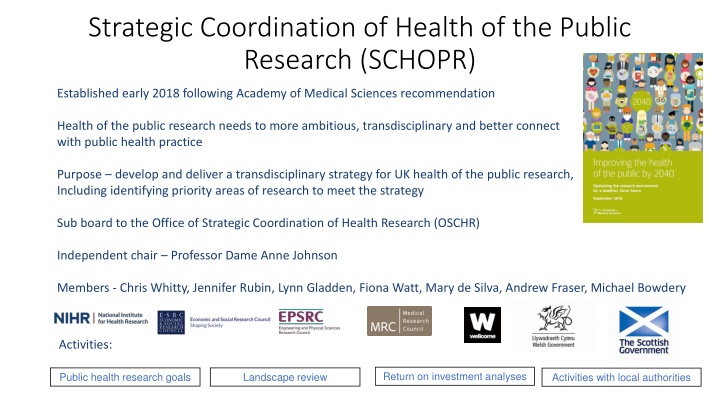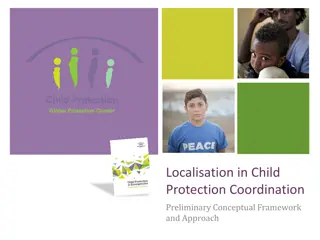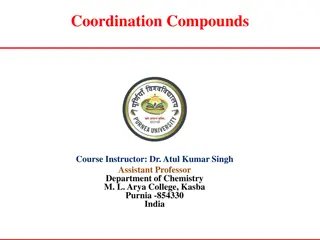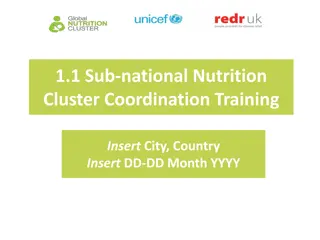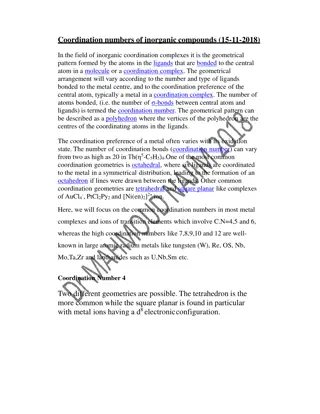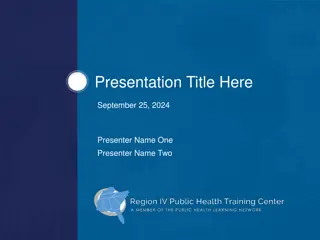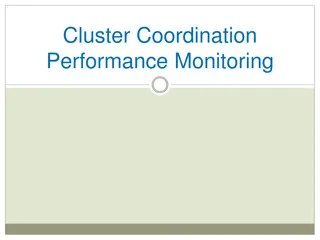Strategic Coordination of Health Research: Transforming UK's Public Health
SCHOPR, established to elevate UK health of the public research, focuses on transdisciplinary strategy development, priority research areas identification, research principles fostering change, and embedding infrastructure for effective research outcomes.
Download Presentation

Please find below an Image/Link to download the presentation.
The content on the website is provided AS IS for your information and personal use only. It may not be sold, licensed, or shared on other websites without obtaining consent from the author.If you encounter any issues during the download, it is possible that the publisher has removed the file from their server.
You are allowed to download the files provided on this website for personal or commercial use, subject to the condition that they are used lawfully. All files are the property of their respective owners.
The content on the website is provided AS IS for your information and personal use only. It may not be sold, licensed, or shared on other websites without obtaining consent from the author.
E N D
Presentation Transcript
Strategic Coordination of Health of the Public Research (SCHOPR) Established early 2018 following Academy of Medical Sciences recommendation Health of the public research needs to more ambitious, transdisciplinary and better connect with public health practice Purpose develop and deliver a transdisciplinary strategy for UK health of the public research, Including identifying priority areas of research to meet the strategy Sub board to the Office of Strategic Coordination of Health Research (OSCHR) Independent chair Professor Dame Anne Johnson Members - Chris Whitty, Jennifer Rubin, Lynn Gladden, Fiona Watt, Mary de Silva, Andrew Fraser, Michael Bowdery Activities: Return on investment analyses Public health research goals Landscape review Activities with local authorities
Developing Research Goals and Principles to increase the impact of the UK s offer on health of the public research Process Products Principles Consultation Foundations which will foster right conditions VISION A transformed health of the public research offer and better health for the population Infrastructure Structures, mechanisms and incentives to create enablers and reduce barriers Analysis Goals Signalling where to focus research attention Formulation
Research principles Foundations which will foster right conditions so research will ultimately identify the most cost-effective methods to prevent ill-health, increase healthy life expectancies, and reduce health inequalities Focus on research that has the potential to drive large-scale positive change Encourage innovation and ambitious thinking Raise ambition Bring non-traditional disciplines into health of the public research Advocate a systems-based approach Widen perspective Encourage evaluation and synthesis of evidence Communicate findings through modern means and informed by behaviour science Improve understanding Co-production of research Develop new models of joint working to co-produce research with those who will use and benefit from the evidence
Embedding infrastructure Structures, mechanisms and incentives to create enablers and reduce barriers Exploit advances in technology, genomics and data science to improve research methods and design Develop novel approaches and best practice for co- production of research in non-traditional settings Build long term sustainability into funding arrangements Facilitate and invest in better use and linkage of health, administrative, social, and environmental data, including longitudinal cohorts, while ensuring appropriate safeguards are in place Develop new transdisciplinary and sustainable career pathways for the health of the public research workforce
Goals To signal where to focus research attention ENVIRONMENT LIFECOURSE SYSTEMS INNOVATION FOOD SYSTEMS Goal: Reshape food systems to improve health ENVIRONMENTAL DETERMINANTS OF HEALTH Goal: Create and maintain built and natural environments for better health EARLY LIFE AND EDUCATIONAL SETTINGS Goal: Set children and young people on the right path for good health TECHNOLOGY Goal: Deploy new technologies for health protection and health improvement HEALTH AND CARE SYSTEMS Goal: Understand the role of the health and social care system in prevention HEALTHY WORKING LIVES Goal: Respond to changes in how we work and what it means for health PEOPLE AND PLACE Goal: A place-based approach to reduce health inequalities LEGAL AND FISCAL LEVERS Goal: Better use of legal and fiscal levers to improve population health
Next steps Meeting UK CMOs in early October to discuss research principles and goals Then publish and disseminate principles and goals Continue activities on other work strands adding strands on systems thinking, behaviour science and what we can learn from other countries
RESEARCH PRINCIPLES: INCREASING THE IMPACT OF THE UKS OFFER ON HEALTH OF THE PUBLIC RESEARCH Overarching principles Undertake research to identify the most cost-effective methods to prevent ill-health, increase healthy life expectancies, reduce health inequalities Embrace a long-term and sustainable approach to better balance human advancement with the environment, in line with the principles of planetary health Intervene across a range of environments on both the upstream drivers of physical and mental health, alongside what can be achieved by the health and social care system Raise ambition Focus on research that has the potential to drive large-scale positive change Encourage and reward innovation and ambitious thinking Support a Health in All Policies approach to bring health of the public centre stage Co-production of research Develop new models of joint working to co-produce research with those who will use and benefit from the evidence, including: Widen perspective Encourage transdisciplinary working, training and knowledge exchange to bring non-traditional disciplines into health of the public research Develop and optimise new methodological approaches and technologies Advocate a systems-based approach to understanding and tackling complex public health challenges Improve understanding Encourage synthesis of existing and new evidence of what works and what doesn t, and ensure this feeds into policy and practice Ensure that research findings are timely and communicated to the public and practitioners through novel, modern and relevant means based on evidence from behavioural science Evaluate interventions to identify what works, where and why, assess costs, benefits and timeframes for impacts, and use implementation science approaches to ensure transferability across demographic groups and geographical areas Promote a culture of learning and sharing with other countries to support international efforts to improve global health security and planetary health local authorities and devolved administrations the public practitioners policymakers the third sector
Research Goals ENVIRONMENT ENVIRONMENTAL DETERMINANTS OF HEALTH Goal: Create and maintain built and natural environments for better health Transdisciplinary research into the environmental determinants of health to develop cost-effective interventions to improve and protect the health of the public through the design and maintenance of built and natural environments, consistent with the principles of planetary health. PEOPLE AND PLACE Goal: A place-based approach to reduce health inequalities A strong body of actionable transdisciplinary evidence to create and deliver targeted national and local health of the public solutions to meet the needs and improve health outcomes of excluded and vulnerable populations (including the elderly) within their communities. Research questions and interventions should be co-produced with the public and practitioners, independently.
LIFECOURSE EARLY LIFE AND EDUCATIONAL SETTINGS Goal: Set children and young people on the right path for good health Transdisciplinary research into the association between early life, education, educational environments, and health to inform policy and practice and to develop cost-effective interventions within early life programmes and educational settings, co-produced with young people and practice partners, to establish healthy learning environments and behaviours, and improve physical and mental health and educational outcomes. HEALTHY WORKING LIVES Goal: Respond to changes in how we work and what it means for health Forward looking research that explores the relationship between work environments, patterns and practices (including worklessness) and health of the public, and how this is likely to evolve in the context of the digital revolution and changing demography. It should drive evidence on optimum workplace design, employment and income structures within the workplace and inform forward-looking government policy, practice and industry measures to maintain and improve the physical and mental health, adaptability and resilience of the working age population.
SYSTEMS FOOD SYSTEMS Goal: Reshape food systems to improve health Systems-based research capacity to inform agricultural and food industry policy and practice and to identify and fill evidence gaps for cost-effective interventions across the food system to support healthier, more sustainable and environmentally-friendly diets, and diminish inequalities in nutrition related health outcomes. HEALTH AND CARE SYSTEMS Goal: Understand the role of the health and social care system in prevention Develop a strong evidence base and promote a culture of understanding of what works in health and social care systems for prevention of ill-health, at both the individual and population level. This would enable systems-level change that is informed by implementation science and which complements the work of local authorities and devolved administrations. LEGAL AND FISCAL LEVERS Goal: Better use of legal and fiscal levers to improve population health Investment in research to investigate and measure the health impact and economic costs and benefits of legal and fiscal measures at national, local and individual level, to inform future policy and practice.
INNOVATION TECHNOLOGY Goal: Deploy new technologies for health protection and health improvement Transdisciplinary research to develop and evaluate novel digital and non-digital technologies for health protection, health improvement and health communication, and deploy these where needed across the health and social care system.
